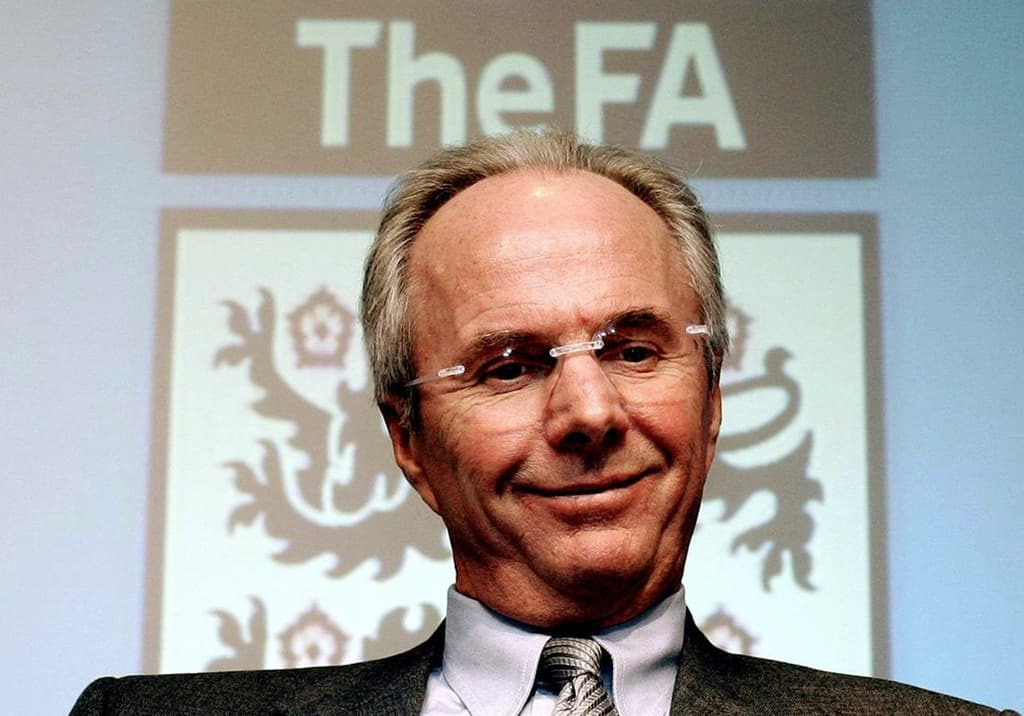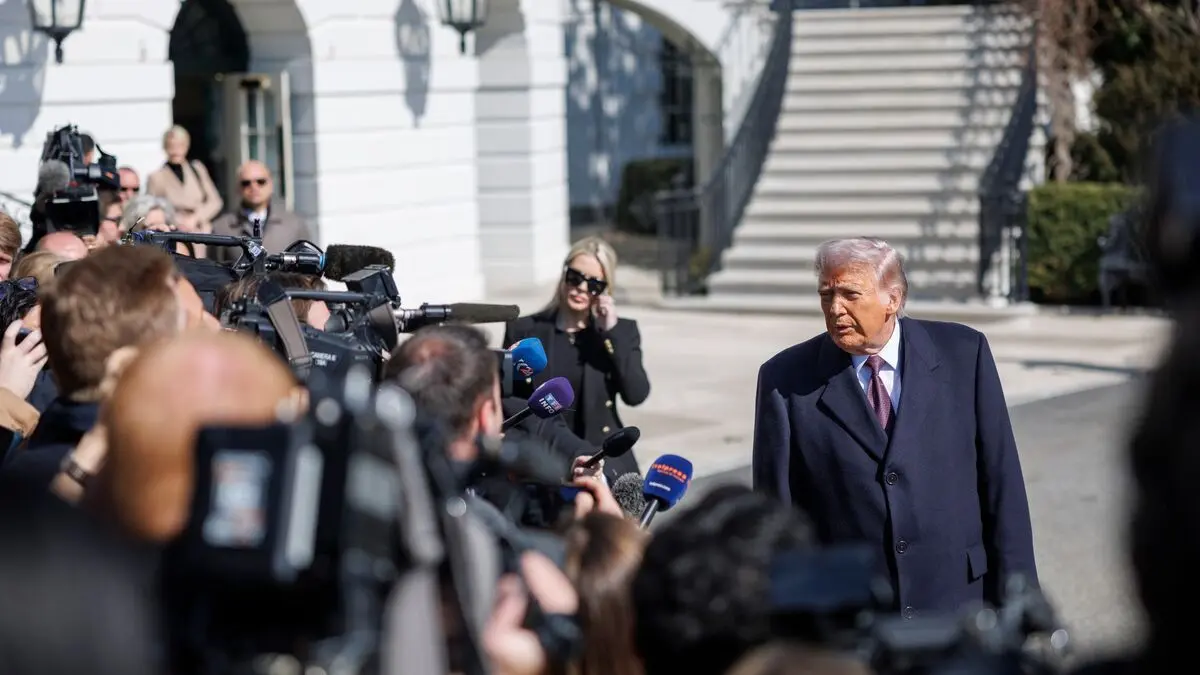No Swedish football coach has experienced and achieved more than Sven-Göran Eriksson.
Little brother Lasse had trouble saying Sven-Göran, he said Tenn-Hönan, which became Tennis.
Big brother thought Svennis sounded better.
And so it was.
At home in Torsby, mom Ulla was a kiosk assistant and dad Sven drove a truck.
Like many other boys, Sven-Göran Eriksson dreamed of one day becoming a professional footballer. It didn't happen. With these words, he once summed up his playing career:
I was good enough to be a decent right-back in Division 2, but not more.
Grip's good advice
What he lacked in ability was compensated by a deep understanding of football. One of the first to see this talent was his long-time friend and mentor.
It was a man named Tord Grip who came home and told me that he thought I should stop playing football. It was the best professional advice I ever got.
The rest is, as they say, Swedish football history.
About ten years ago, he released the book Svennis – my story, together with Stefan Lövgren. There, he told in detail and openly about most things about his profession and private life. About the successes, setbacks, betrayals, lies, quarrels, conflicts, how he was cheated out of 100 million, the difficulty of keeping a family together as a coach.
And much more spicy, interesting, and revealing, such as how the boy from little Torsby would one day be presented as the first foreign national team captain for the English national team.
Today, it wouldn't have created the uproar that occurred in the fall of 2000. Parts of the English press competed in questioning the choice of a Swede for the most important post in the country, next to the queen and prime minister.
How overwhelmed Eriksson was to get the assignment must be put into context. He grew up with Tipsextra, at a time when foreign football on TV could be boiled down to Saturday's 90 minutes of English league football on muddy pitches.
As a young coach, he took the boat from Göteborg to Harwich to watch matches and make study visits. It shaped his football philosophy, but he didn't fall into the trap of trying to become like the typical English manager.
Career highlight
Eriksson kept his warm smile, his calm, and his disarming humor.
If you were a football coach in England, you screamed. It was fuck this and fuck that. But what was constructive about that? It didn't create confidence or a safe atmosphere among the players, quite the opposite.
The five years as national team captain were the highlight of his career. It coincided with a stormy relationship with Nancy Dell'Olio. His team captain David Beckham formed with Victoria one of the world's hottest celebrity couples. The media spotlighted him. His phone was tapped by a tabloid newspaper. Readers could indulge in his affairs with Ulrika Jonsson and the federation's secretary Faria Alam.
Yet, he later stated:
My best job. I enjoyed being national team captain in England. It was probably my ego that came out there. It's big, it makes you proud.
But he wouldn't have gotten there if it weren't for Tord Grip. In 1976, Grip trained Degerfors with Eriksson as assistant and youth coach.
A year later, Eriksson took over, and before the 1979 season, IFK Göteborg contacted him. The first time there was miserable.
Gained the players' support
The recreation department in Göteborg wondered if they could rent out the midfield circle when we played, they meant that we only kicked long balls all the time. There were people who wanted to "send that clown back to the woods" and I actually offered my resignation and asked the players if they wanted me to stay.
Three years later, IFK Göteborg had won two Swedish championships, two cup titles – and as the first Swedish team, a European cup title.
If we hadn't won the UEFA Cup then, I might still be here at home, he said in an interview.
Instead, a wonderful football journey awaited.
Sven-Göran Eriksson gave, as he wrote in his autobiography, "all for football".
You have to do that to get where I've gotten. The price I paid for my success is high. I've never asked myself if it was worth it. Money was never important to me, I was born poor and will probably die poor, but I know I've lived and will live a good life in between.
Born: February 5, 1948, in Sunne.
Died: August 26, 2024.
Occupation: Football coach.
Clubs as a player: Torsby, Sifhälla, Karlskoga.
Clubs as a coach: Degerfors (1977–1978), IFK Göteborg (1979–1982), Benfica, Portugal (1982–1984), Roma, Italy (1984–1987), Fiorentina, Italy (1987–1989), Benfica (1989–1992), Sampdoria, Italy (1992–1997), Lazio (1997–2001), Manchester City, England (2007–2008), Notts County, England (sporting director 2009–2010), Leicester, England (2010–2011), Tero Sasana, Thailand (sporting director 2012), al-Nasr, United Arab Emirates (technical advisor 2013), Guangzhou, China (2013–2014), Shanghai (2014–2016), Shenzhen, China (2016–2017), IF Karlstad (sporting advisor 2022-2023).
Countries as national team captain: England (2001–2006), Mexico (2008–2009), Ivory Coast (2010), Philippines (2019).
Main merits: Swedish champion, cup winner, and UEFA Cup winner with IFK Göteborg, league and cup winner with Benfica, cup winner with Roma, Sampdoria, and Lazio. Italian champion and winner of the Cup Winners' Cup with Lazio. Reached the quarterfinals with England in the 2002 World Championship, 2004 European Championship, and 2006 World Championship.
Famous players he worked with (selection): Glenn Hysén, Glenn Strömberg, Torbjörn Nilsson, Jonas Thern, Stefan Schwarz, Mats Magnusson, Gianluca Vialli, Roberto Mancini, Sinisa Mihajlovic, Diego Simeone, Juan Sebastian Veron, Simone Inzaghi, Christian Vieri, Alessandro Nesta, David Beckham, Wayne Rooney, Michael Owen.
Coaches he worked with (selection): Tord Grip, Gunder Bengtsson, Benny Lennartsson, Hasse Backe
Other: Was a candidate for the Swedish national team captain in 2009. Recipient of TT's leadership award in 1982, recipient of the Swedish Football Association and TV4 Football Channel's honorary award in 2019, named Swede of the World in 2001.






